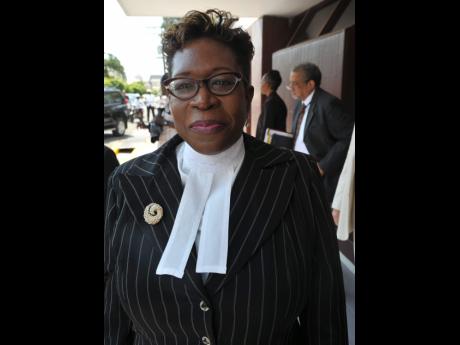Tough but rewarding 2016 - Llewellyn
Despite public criticisms over her office's handling of some high-profile cases last year, Director of Public Prosecutions (DPP) Paula Llewellyn is adamant that her team did well.
"If you look at our statistics at the end of each term, certainly at the Circuit Court, you will find that convictions outweigh acquittals," Llewellyn told The Sunday Gleaner as she responded to thinly veiled suggestions that she should be the next high-ranking public servant to offer her resignation.
With People's National Party President Portia Simpson Miller and Police Commissioner Dr Carl Williams indicating that they will be stepping down this year, some critics have argued that it is also time for a new DPP.
The criticisms of the DPP's office and the entire justice system reached fever pitch, particularly on social media last October, with the collapse of the case of businessman Patrick Powell, who was charged with the 2011 killing of a schoolboy in what was dubbed the 'X6 murder trial'.
But Llewellyn is not daunted about criticisms surrounding that trial and some other high-profile cases.
"The public is short-served because there is insufficient publication in respect to a lot of the cases that have been tried and in which we have gained conviction," said Llewellyn, as she praised the resolve of "courageous witnesses" who assist the justice processes.
"In the X6 case, that was a very tragic case and, unfortunately, the most important witness in the case who would have established identification did not come up to proof.
"People must remember that neither the police nor the DPP, nor the commissioner nor the minister, can go to court and prove a case based on hearsay," added Llewellyn.
Kingston College student Khajeel Mais was shot dead on July 1, 2011, while he was travelling in a taxi in Havendale.
The killer was believed to be driving a BMW X6 sport utility vehicle.
Powell was subsequently charged but he was acquitted after the prosecution told the court that there was no evidence to confirm that he was indeed at the scene when Mais was shot, after the star witness allegedly recanted an earlier statement that was being relied on by the DPP.
"In the final analysis, you still have the human component to deal with. The emotions, and we cannot use emotions to assess a case," said Llewellyn.

